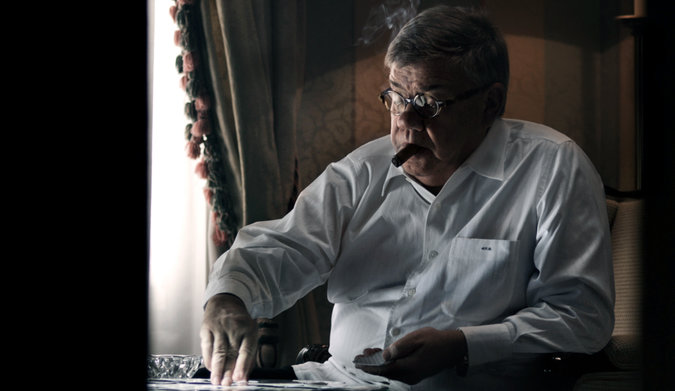Directed by Carlos Agulló and Mandy Jacobson
Produced by Jacobson
Written by Stephen W. Smith
Released by Trinity
South Africa. 82 min. Not rated
It’s easy to forget what an embarrassment on the global stage South Africa’s apartheid regime was, not least because of how far into the modern era it extended, officially ending only in 1994. In this new documentary, we see raw footage of the brutality that apartheid brought with it—vicious beatings and executions in the street, black South Africans scrambling for cover behind their tin-and-cardboard ramshackle houses while white police try to inflict as much damage as possible.
The film describes the untold, backroom role that Algerian-born French businessman Jean-Yves Ollivier played in the sensitive negotiations between hostile countries bordering South Africa and the distrustful factions within. Ollivier was a teenager in Algeria during its revolution in 1962, when French colonization of the African nation ended after 114 years. That war gave him a strong sense of the inevitability of freedom for all African people, though what initially attracted him to South Africa was the unique business opportunity it provided.
As a banned country under a strict oil embargo, it had to invent its own mode of production, which presented a prospect for an enterprising businessman like Ollivier. Once he became involved in the country (presumably deriving great financial benefits from its trade restrictions), he saw a chance to aid the political transition, without bloodshed, away from what he believed to be a doomed government.
Officially, systematized South African apartheid actually started in 1971, nearly a decade after Algerians won their independence. What Ollivier experienced there shocked him. It wasn’t so much the wretched conditions of the non-white South Africans that struck him, which he expected, but the delusive, 1950s American Pleasantville-style fantasy world that white South Africans had constructed for themselves. There is some fascinating footage of whites indulging in their anachronistic, out of touch lives, but not too much, as the real goal of the film is to push on to the political maneuvers Ollivier accomplished.
Perhaps Plot for Peace would have been more effective if it focused on just a few of the very many acts of mediation Ollivier was involved in and if it established more context, thus making us feel his accomplishments more deeply. Ollivier, and the circle of public officials in his orbit who also appear, lived and breathed these obscure African political chess matches for years, and sometimes seem to presume the audience is as fluent with, say, the intricacies of Angolan paramilitary dynamics as they are.
The film excels in showing how the struggle to free Nelson Mandela and end apartheid played out around some of the highest tensions of the latter days of the Cold War. There is particular focus on the war in Angola, which started immediately after its independence from Portuguese rule in 1975 and continued through 2002. In the wake of independence, Cuban forces rushed to support the communist movements, while the United States supported the South African establishment, indirectly endorsing Mandela’s imprisonment and the existence of institutionalized racism. It’s no coincidence that Mandela wasn’t freed until after the Soviet Union had collapsed, when the threat of South Africa becoming a Soviet power lever was gone.
The point of the film is not necessarily to teach viewers about African political strife in the 1980s but to expose the key yet unheralded role Ollivier played in the easing of tensions, paving the way for the first South African election with universal suffrage in 1994. Enjoyment of the documentary will hinge on how interested you are in listening to a negotiator describe how he negotiated with negotiators to set up negotiations between those negotiators and other negotiators—he didn’t take part in the talks himself.
While there is something a bit wearying in listening to a man for 84 minutes telling you how important his own accomplishments were, Plot for Peace offers keen insights into several major historical events.







[…] Read More of the Review by clicking on the link below: http://film-forward.com/documentary/plot-for-peace […]